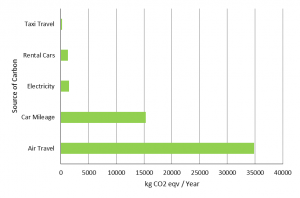11 February 2025
It’s not too long ago that sustainability was considered a niche interest area, but as public awareness and interest on environmental issues has grown, eco-friendly practices have transformed sustainability from a buzzword into a business imperative. Green goals, bigger gains: the path from net zero to net profit As sustainability has become mainstream, consumers have become more discerning, looking beyond superficial green branding and demanding authentic sustainability practices. This evolution in consumer expectations signals a significant opportunity for businesses to leverage sustainability as a competitive advantage, positioning themselves favourably in a market that increasingly leans towards responsible consumption. Companies demonstrating transparency, affordability, and a long-term commitment to sustainability not only meet consumer demand but also secure long-term success. Afterall, it’s easier for consumers to identify environmentally responsible goods and they are willing to pay more for their sustainable products to lead a greener lifestyle. As regulations tighten and calls to live more consciously increase, companies failing to act risk falling behind. However, businesses that dynamically embrace sustainability can transform their carbon footprint into a strategic advantage , driving cost savings, enhancing brand reputation, and unlocking new market opportunities. From carbon management to energy efficiency and process engineering services, a tailored robust sustainability strategy positions businesses ahead of competitors who fail to switch to eco-friendly practices or prioritise environmental responsibility. Measuring and analysing carbon footprint – the first step towards net zero The first step towards sustainability is understanding where your business stands. Accurately measuring carbon emissions across all operations identifies the key areas for improvement. Standardised frameworks such as the Greenhouse Gas Protocol safeguards integrity and accuracy. Thorough energy audit and management assessment pinpoints energy wastage and inefficiencies. Specialist carbon footprint management tools are deployed to track progress and set realistic reduction goals. Collaborating with DETA’s experienced carbon management services simplifies this process, ensuring businesses comply with reporting standards while identifying cost-saving opportunities.






